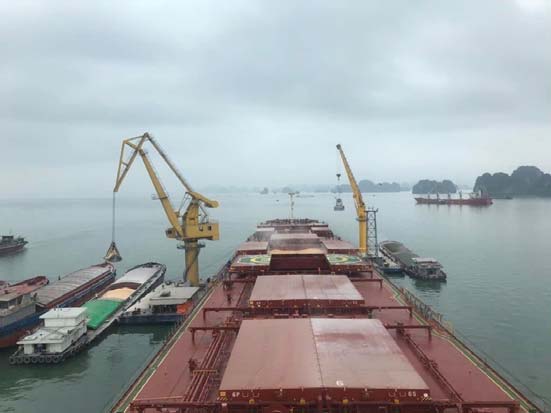The storage and handling of U.S. coarse grains and co-products is a major constraint to sales into the Southeast Asian region. Many large feed mills prefer not to use U.S. corn because of misconceptions and lack of information about the durability of U.S. corn in hot, tropical environments.
To tackle these misconceptions, the U.S. Grains Council organized one-on-one technical servicing sessions in September 2021 with one of the Council’s multinational partners, Mavin Austfeed, a market leader in Vietnam with a feed production capacity of over 1.2 million metric tons (MMT) and product lines in hog, poultry, duck, cattle, and aquaculture feed. The session focused on training quality control staff on the best practices for storing U.S. corn in the Vietnamese climate.
The training was organized by the Council’s consultant based in Vietnam and led by the office’s regional technical consultant. When designing the program, the Council addressed concerns over the storage of higher moisture U.S. corn in tropical climates by sharing best practices to enable the company to store it safely and effectively.
Forty-two operations and quality control employees from the company attended the training, during which employees were able to ask the Council’s regional consultant specific questions regarding storage methods in Vietnam. Follow-up meetings were scheduled at the conclusion of the training to ensure continuous engagement of the company’s representatives. Immediately afterward and as a direct result of the Council’s training and technical support, Mavin Austfeed imported 20 thousand metric tons (TMT) (787 thousand bushels) of U.S. corn and 10 TMT of U.S. distiller’s dried grains with solubles (DDGS), with an export value of $7.45 million.
This program highlights the importance of continued engagement and support to address customer concerns as a tool to build relationships and trust, which are crucial to long-term market development in the Vietnamese and Southeast Asian contexts.
The Council invested $1,000 of Market Access Program (MAP) funds to support this engagement. As a result, participants increased purchases of 10 TMT of DDGS and 20 TMT (787,360 bushels) of U.S. corn with a combined value of $7.45 million. That results in a return on investment of $7,450 per $1 of MAP funds invested.
About The U.S. Grains Council
The U.S. Grains Council develops export markets for U.S. barley, corn, sorghum and related products including distiller’s dried grains with solubles (DDGS) and ethanol. With full-time presence in 28 locations, the Council operates programs in more than 50 countries and the European Union. The Council believes exports are vital to global economic development and to U.S. agriculture’s profitability. Detailed information about the Council and its programs is online at www.grains.org.

